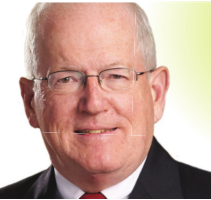Legislative rules were abandoned or adjusted to meet current conditions
When the Covid-19 pandemic hit New Hampshire in mid-March, the Legislature was about a third to half of the way through its second session of the biennium. Many bills were in the process of being considered — some new, some held over from 2019. Then, everything stopped.
The House and Senate stopped meeting or having in-person hearings, due to the need for safety. Eventually, committees figured out how to do limited work by Zoom meetings, but for all practical purposes, legislative activity ceased. Some observers wondered if this might not be an object lesson for those who do not remember when the Legislature met every
other year, except in emergencies, and some even commented that they
felt safer with the solons at home. In any event, nothing happened again
until the beginning of June.
When leadership in both bodies figured out how
to commence action, it was very different. The 24-member Senate met in
the 400-member House chamber, so they could socially distance. The
400-member House selected the Whittemore Center at UNH in Durham as its
location, and photos of the members sitting in chairs, socially
distanced on the ice arena’s floor, were in stark contrast to the House
chamber in Concord.
Substantively,
the Senate voted to extend its time for acting, but the House
Republicans refused. The result of this was that no further action on
Senate bills in the House was possible, but the Senate could continue to
act on House bills. Since it took a twothirds vote to waive the rules
and continue House deliberations on bills, but only a majority to pass
House bills revised by the Senate, Democratic lawmakers came up with a
plan.
House bills
already passed by the House were amended significantly by tacking on
language from many bills already passed and sent to the House, and then
the revised bills went back to the House, which passed them by a
majority vote.
When
many of the bills — like family leave, revising the net metering of
electricity system, and others — were passed, they went to Governor
Sununu for signature, where he vetoed many of the bills that were
repeats of those he vetoed the year
before. A few, however, became law. Observers noted that this was deja
vu. It also was a setup for the fall election campaign.
One set of bills this observer was watching were
two bills making changes in election laws. One, proposed by Senate
Democrats, made fundamental changes in some election laws on a lasting
basis, many of which had been vetoed in the past or were opposed by
Governor Sununu, such as “no-reason absentee voting” and online
registration. This bill was termed “aspirational” by some of its
sponsors, expecting a veto, which it received. The other bill, codifying
some of the recommendations of the Select Committee on elections
appointed by Secretary of State Gardner, was a bipartisan, 2020-only set
of changes to election laws to accommodate voting in a pandemic.
Notable provisions of this bill were codifying the fact that concerns
about Covid-19 are a legitimate reason to vote absentee, changing the
rules on handling absentee ballots and others.
What
was interesting about observing coverage of the two bills was how the
politicians either confused or misrepresented the bills, and how the
press missed the point. At one time in the process, the sponsor of the
aspirational bill was claiming it was a fix for pandemic issues, and the
Concord Monitor was editorializing that the governor should sign it due
to the pandemic.
When
the bipartisan bill passed the Senate unanimously, then passed the
House with a sizeable majority and the governor signed it, people came
to understand the difference between the bills, although partisans had
already had the chance to demonize the governor for his veto of one,
claiming it was the other. This may prove the old adage that the more
you know about the facts of a matter, the less you recognize in many
press accounts of it.
Happily,
however, as the result of the passage of House Bill 1266 (the
bipartisan bill) into law, voters now can get one application for
absentee ballots for both the September primary and the November general
election, claim Covid-19 concerns as a reason for voting absentee and
election officials will be able to deal with the expected large increase
in absentee ballots before election day itself. Voters can both be safe
and participate in the election.
To get the application for an absentee ballot, go to SOS.NH.gov.
The
Legislature probably would not have enabled this if its schedule had
been as originally designed, but it would not have had to absent
Covid-19!
Brad Cook is a Manchester attorney. The views expressed in this column are his own. He can be reached at bradfordcook01@gmail.com.